Death toll from upsurge in clashes in eastern Ukraine rises to 19
The death toll from the latest upsurge in fighting between government troops and pro-Russia forces in volatile eastern Ukraine has reached 19, as the United Nations has called on the warring sides to halt the clashes and NATO urges Moscow to help stop the spike in the deadly violence.
The death toll rose as the two sides exchanged mortar and rocket fire for a fourth day on Wednesday, around the flashpoint town of Avdiivka on the outskirts of Ukraine’s eastern restive region of Donetsk, after the pro-Russia forces allegedly launched an offensive to capture the government-held town over the weekend.
The Ukrainian army said three of its servicemen had been killed overnight while the opposing forces claimed that four civilians had lost their lives. The government on Tuesday reported that the fighting had claimed the lives of a dozen of its soldiers and inflicted injuries on dozens more in the bloodiest outburst of violence since a ceasefire brokered last December.
An unspecified number of civilian casualties has so far been reported, with some 200 coal miners trapped underground.
The clashes in Avdiivka have left more than 20,000 freezing and nerve-shattered residents of the town without heat, water and electricity in the harsh winter weather with limited relief centers in sight.
The UN Security Council also held an emergency meeting on Tuesday, demanding an immediate end to the violence.
The secretary general of the Council of Europe, Thorbjorn Jagland, also expressed “grave concern” about the resumption of deadly battles in the region.
“The intense fighting … is a blatant violation of the ceasefire, as stipulated by the Minsk agreements. It puts civilian inhabitants at grave risk,” he added.
Back in February 2015, a peace deal was brokered by Ukraine, Russia, Germany and France in Minsk, the capital of Belarus, to end the conflict that has left more than 9,500 people dead and over 21,000 others injured, according to the UN figures.

Meanwhile, NATO Secretary General Jens Stoltenberg called on Russia to use its “considerable influence” with pro-Russia forces in eastern Ukraine to put an end to what he called as “the most serious spike in violations” of a shaky truce there in a long time.
He added that the ceasefire in the volatile region had been violated for over 5,600 times in the previous few days.
Also on Wednesday, Martin Sajdik, the envoy of the Organization for Security and Cooperation in Europe (OSCE), which is tasked with monitoring truce agreements in eastern Ukraine, said that both Kiev and Moscow had called for a “full and all-encompassing truce to be introduced across the entire war zone.”
Placing the blame on Kiev, Kremlin spokesman Dmitry Peskov said on Tuesday that Moscow was extremely concerned by the incident, which, he said, would undermine efforts to implement the Minsk peace agreements. “Such aggressive actions supported by the armed forces of Ukraine undermine the aims and the task of realizing the Minsk accords.”
Ukraine’s Donbass region, where the self-proclaimed republics of Donetsk and Lugansk are located, has witnessed deadly clashes between pro-Russia forces and the Ukrainian army since April 2014, when Kiev launched military operations to crush pro-Moscow protests there.
The conflict in eastern Ukraine and the March 2014 reintegration of the Black Sea Crimean Peninsula into the Russian Federation have pushed relations between Moscow and the West to their lowest level since the Cold War as the latter supports Kiev.
Iran’s uneven fight against US-led financial firewall
Iran joins club of countries with 110 advanced cell therapy products
Zelensky seeks 20-year US guarantee to ink Ukraine-Russia peace deal
VIDEO | Press TV's news headlines
Iran says ball in US court to prove seriousness about making deal
Austrian press casts Iranian ties as threats, spotlighting bias and selective freedom
Munich 'circus' excludes Iran’s elected representatives, platforms ‘regime change’ lobbyists
Israeli reservists exploited secret bombing intelligence to bet on Gaza strikes


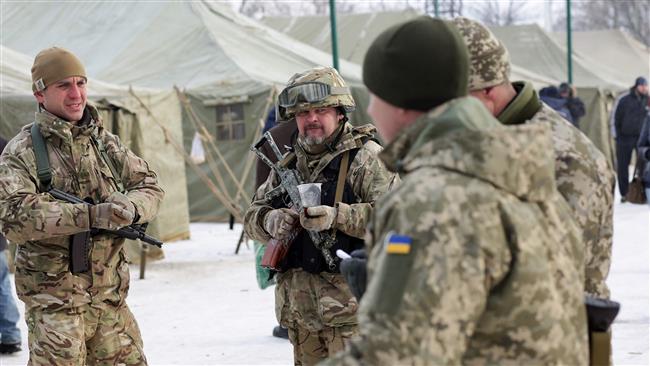
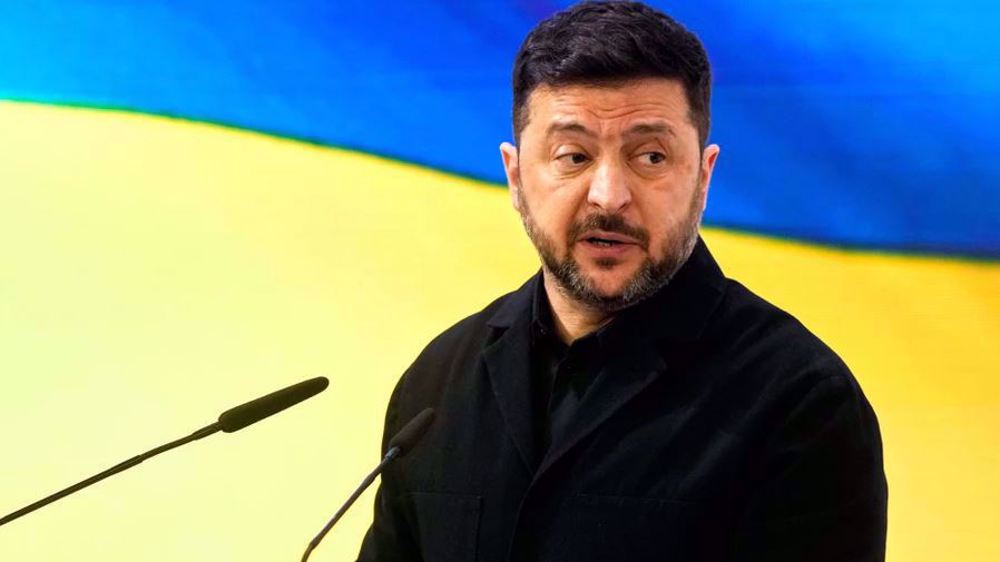
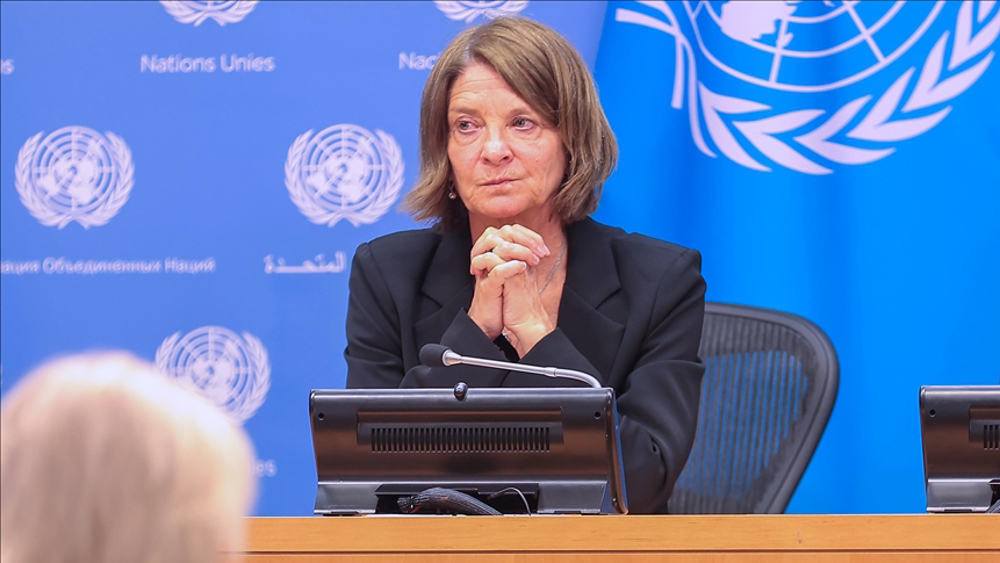
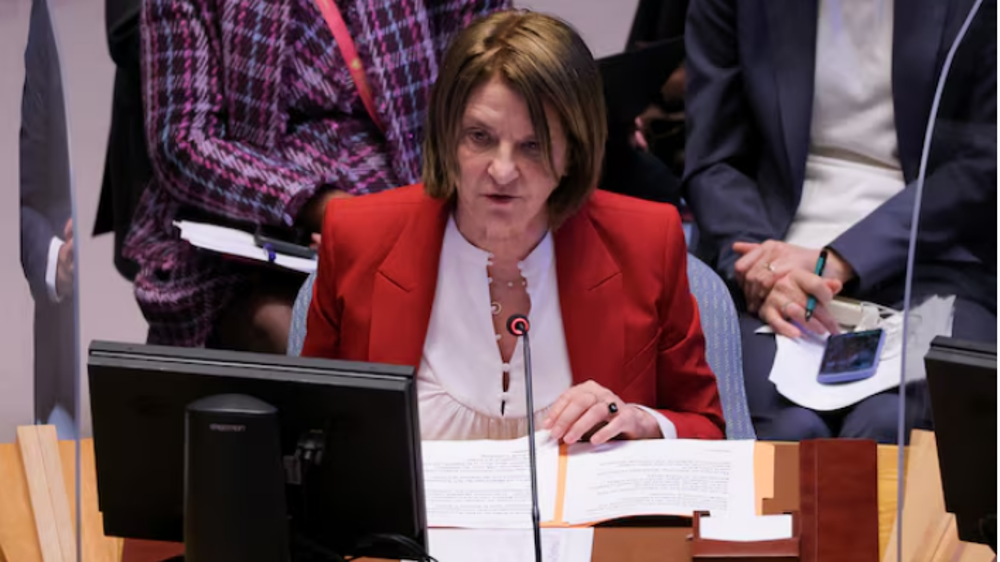



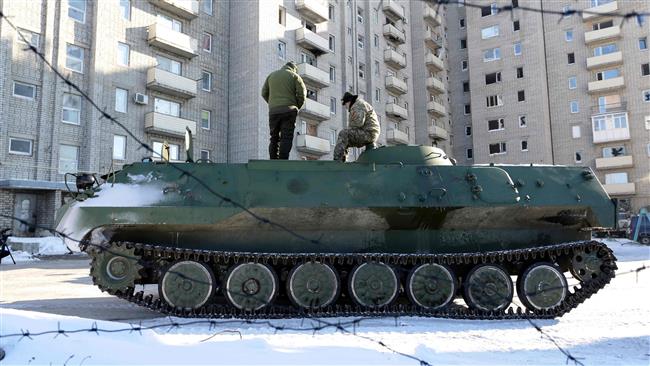
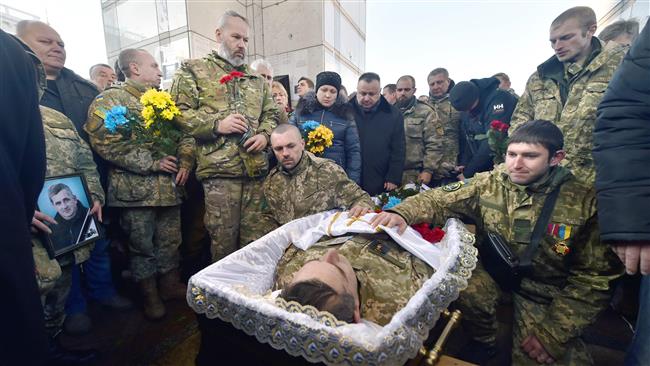
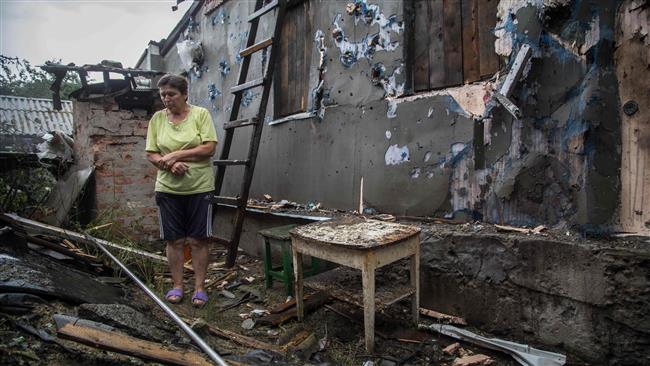
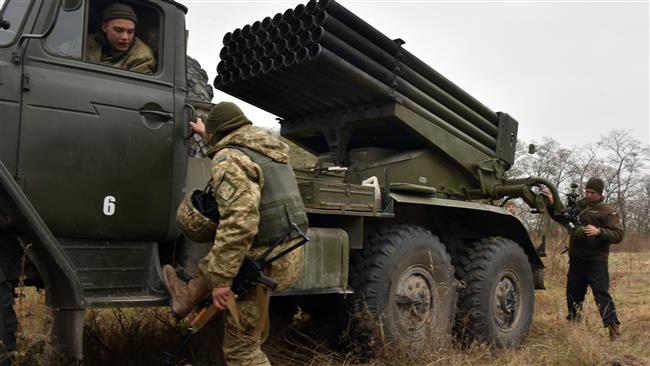

 This makes it easy to access the Press TV website
This makes it easy to access the Press TV website